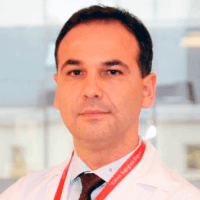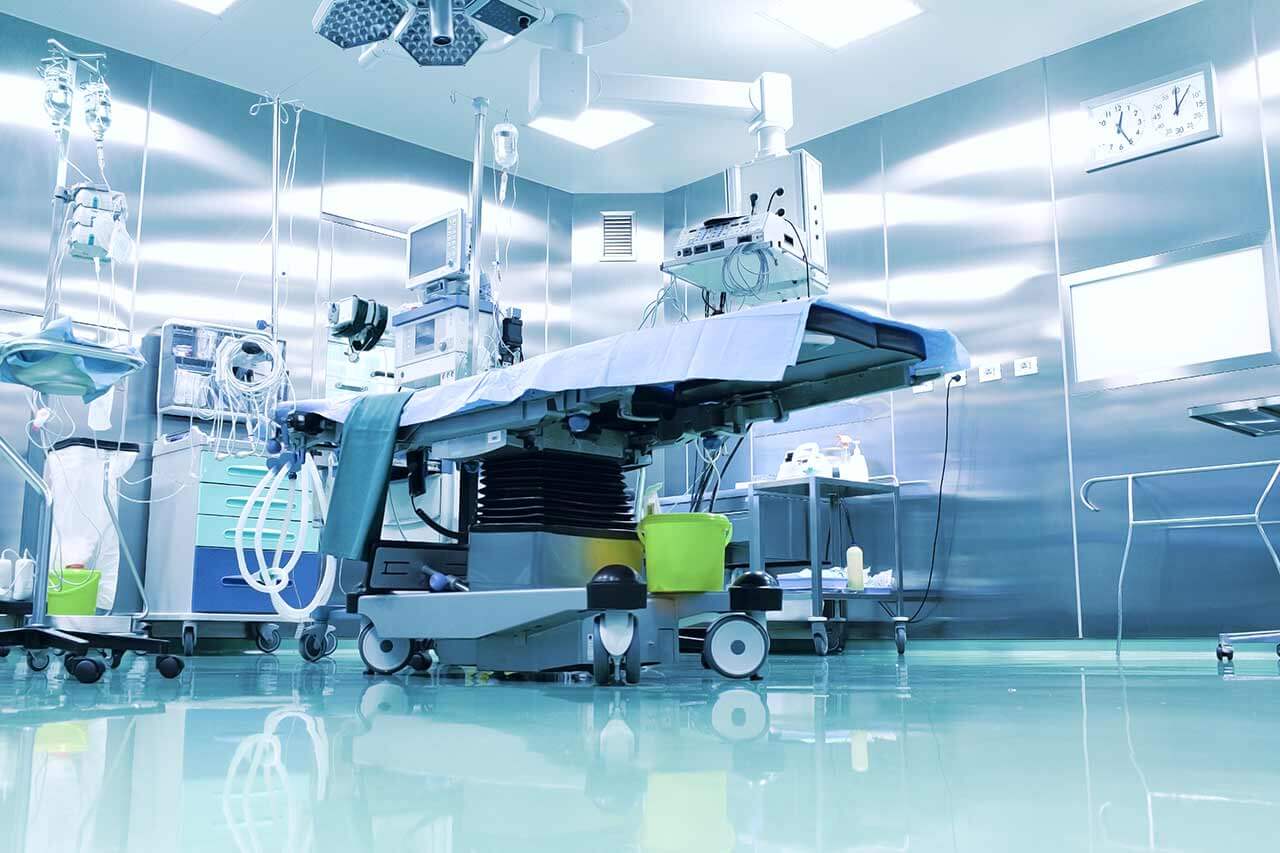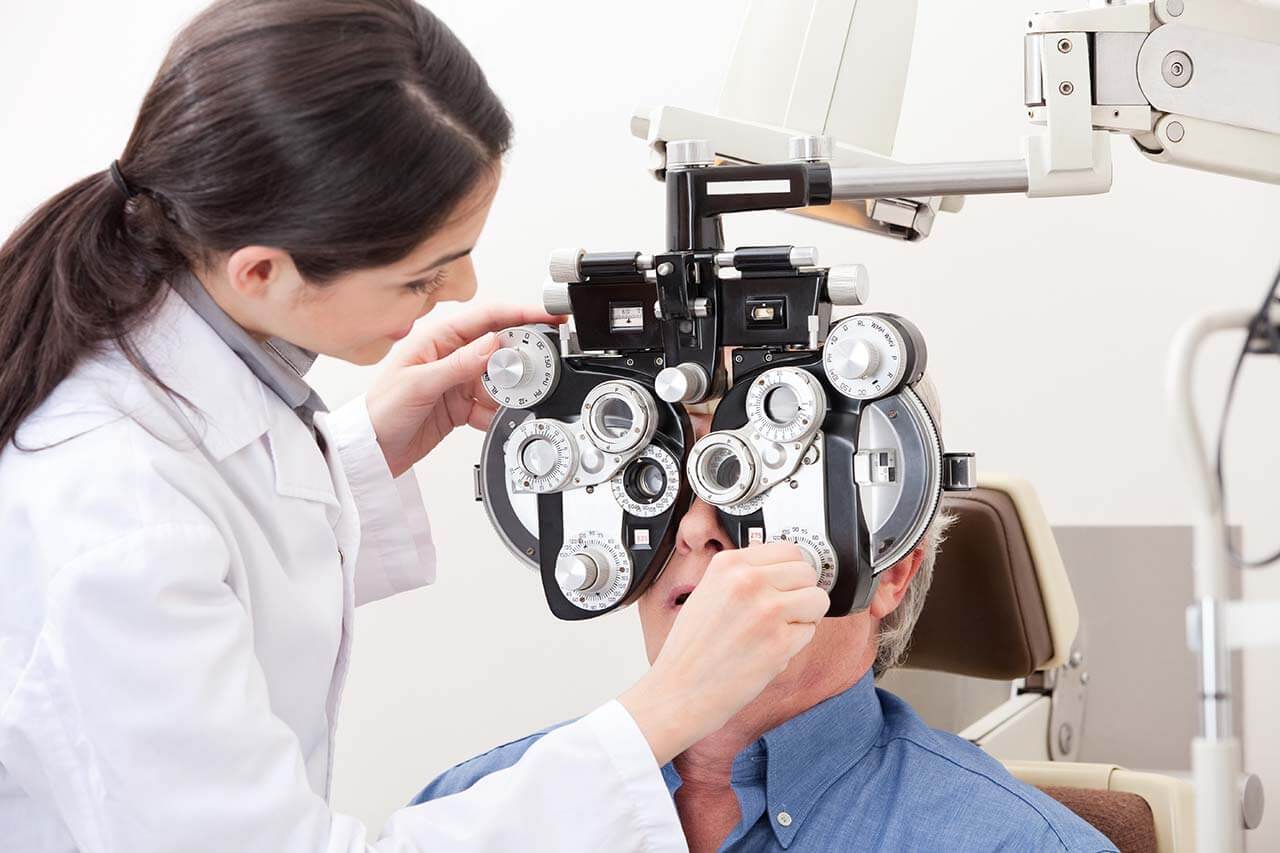
The program includes:
- Initial presentation in the clinic
- clinical history taking
- review of medical records
- physical examination
- laboratory tests:
- complete blood count
- biochemical analysis of blood
- thyroid function test (TSH-basal, fT3, fT4)
- mineral metabolism analysis (Na, K, Ca, Mg)
- lipid metabolism (HDL/LDL, cholesterol, triglycerides,
Lip(a), homocysteine) - iron content (ferritin, iron)
- blood coagulation analysis (aPTT, PT, INR)
- metabolic status (uric acid, total glucose, HbA1c)
- inflammatory parameters (CRP, ESR)
- cardiovascular disease risk markers
- vascular system assessment
- lung function test (Spirometry)
- resting and exercise ECG
- vessel elasticity measurement
- body fat and water examination
- color doppler echocardiography
- color doppler sonography of cerebral vessels
- measurement of arterial blood pressure electrocardiogram
- Holter monitoring (24h)
- preparation according to preoperative standard
- implantation of cardioverter- defibrillator
- symptomatic treatment
- control examinations
- the cost of essential medicines and materials
- nursing services
- full hospital accommodation
- explanation of future recommendations
Required documents
- Medical records
- ECG (if available)
Service
You may also book:
 BookingHealth Price from:
BookingHealth Price from:
About the department
The Department of Diagnostic and Interventional Cardiology at the Memorial Sisli Hospital Istanbul, Istanbul offers the full range of medical services for prevention, diagnostics and conservative treatment of heart diseases. The doctors successfully use in their clinical practice effective pharmacotherapy regimens, as well as modern interventional procedures that help restore the normal state of the cardiovascular system and avoid more invasive heart surgery. The department includes an advanced Chest Pain Unit, which provides medical care to patients with acute coronary syndrome around the clock. To provide comprehensive treatment, cardiologists cooperate closely with specialists from the Departments of Cardiac Surgery and Vascular Surgery, Radiology and Nuclear Medicine. The department's patients are provided with high-quality and effective treatment, which meets the highest standards of modern cardiology. The Chief Physician of the department is Prof. Dr. med. Sabri Demircan.
Prior to the prescription of therapeutic measures, the department's patients undergo comprehensive diagnostics, with the help of which the attending physician can assess the state of the cardiovascular system, as well as develop an optimal treatment regimen in accordance with the individual clinical indications. The department's doctors have in their arsenal state-of-the-art equipment for electrocardiography, echocardiography, Doppler ultrasonography of the blood vessels, 24-hour Holter ECG monitoring, bicycle ergometer test and treadmill test, 24-hour blood pressure monitoring, tilt table test and other diagnostic examinations. Myocardial perfusion scintigraphy is performed in the Department of Nuclear Medicine and the specialists of the Department of Radiology perform cardiac CT and MRI scans. In addition, the department's cardiology team carries out coronary angiography – an invasive examination of the coronary arteries by means of injection of a contrast agent into them through special catheters.
It should be noted that the department uses only effective and modern treatment methods. One of the important innovations of the clinic is enhanced external counter pulsation (EECP). The procedure is a non-surgical method for the treatment of coronary artery disease and heart failure. The main advantage of EECP is the absence of interventional manipulations and side effects. The therapeutic effect is achieved by compressing the legs, thighs and buttocks using special cuffs, which are successively inflated with high pressure air, creating a wave of blood in the arteries. Thus, the pressure in the aortic opening is increased and the blood flow through the coronary vessels is improved. This, in turn, helps to relieve chest pain and improve myocardial function. In addition, the method of enhanced external counter pulsation increases the resistance of a person with cardiac pathology to physical load. The method of enhanced external counter pulsation is approved by the FDA and today it is a medical innovation, which is available only in progressive medical centers.
The department's therapeutic options also include the treatment of arrhythmias using pacemakers and catheter ablation, treatment of aortic valve stenosis using the progressive TAVI technique, therapy of mitral valve stenosis using balloon valvuloplasty and other medical services.
The range of the department's diagnostic and therapeutic services includes:
- Diagnostic procedures, including interventional ones
- Electrocardiography
- Echocardiography
- 24-hour Holter ECG monitoring
- Bicycle ergometer test
- Treadmill test
- 24-hour blood pressure monitoring
- Tilt table test
- Cardiac catheterization
- Coronary angiography
- Myocardial perfusion scintigraphy (in collaboration with the Department of Nuclear Medicine)
- CT angiography (in collaboration with the Department of Radiology)
- Cardiac MRI and CT scans (in collaboration with the Department of Radiology)
- Interventional therapeutic procedures
- Implantation of pacemakers and defibrillators for arrhythmia treatment
- Catheter ablation for arrhythmia treatment
- Transcathether aortic valve implantation (TAVI) for aortic valve stenosis treatment
- Balloon valvuloplasty for mitral valve stenosis treatment
- Percutaneous transluminal coronary angioplasty (PTCA)
- Enhanced external counter pulsation (EECP) for the treatment of coronary artery disease and heart failure
- MitraClip procedure for mitral valve regurgitation treatment when open surgical procedure is contraindicated
- Interventional procedures to correct atrial septal defect, ventricular septal defect and open foramen ovale
- Other diagnostic and therapeutic services
Curriculum vitae
Professional Career
- Since 2018 Head of the Department of Diagnostic and Interventional Cardiology at the Memorial Sisli Hospital Istanbul, Istanbul, Turkey.
- 2013 - 2018 Cardiologist, Department of Cardiology, Şişli Florence Nightingale Hospital, Istanbul, Turkey.
- 2004 Cardiologist, Department of Cardiology, State Hospital in Samsun, Turkey.
- 2004 - 2013 Cardiologist, Department of Cardiology, Ondokuz Mayıs University Hospital, Samsun, Turkey.
Higher Education and Postgraduate Training
- 2014 - 2018 Professor at the Faculty of Medicine, Istanbul University, Istanbul, Turkey.
- 2009 - 2013 Assistant Professor at the Faculty of Medicine of the Ondokuz Mayıs University, Samsun, Turkey.
- 1998 - 2004 Specialized training in Cardiology, Faculty of Medicine at the Ondokuz Mayıs University, Samsun, Turkey.
- 1992 - 1998 Study of Human Medicine, Faculty of Medicine at the Istanbul University, Istanbul, Turkey.
Scientific Publications, Participation in Conferences and Courses
- 87 scientific publications in Turkish and international journals.
- Participation in 64 scientific conferences and courses.
- Authorship of 5 chapters in books in Turkish editions.
Memberships in Professional Societies
- Turkish Medical Association.
- Turkish Society of Cardiology.
- Working Group on Arrhythmia of the Turkish Society of Cardiology (Board Member).
- Working Group on Interventional Cardiology of the Turkish Society of Cardiology.
- European Society of Cardiology.
Photo of the doctor: (c) Memorial Şişli Hospital
About hospital
The Memorial Sisli Hospital Istanbul is the largest and leading medical complex in Turkey, which meets the highest standards of medical care when providing the advanced diagnostics and treatment using the very latest methods. The hospital is part of the Memorial Health Group – it was the first project of this provider of medical services. The medical center opened its doors to the first patient in 2000. The hospital became the first in Turkey and the twenty-first in the world holder of the JCI (Joint Commission International) accreditation certificate. Only the best and the most reputable hospitals in the world medical arena can receive this certificate.
The hospital has 292 beds for patient hospitalization. The surgical treatment is performed in 13 high-tech operating rooms. The medical complex also has 4 intensive care units, 3 state-of-the-art laboratories, specialized centers, including the In Vitro Fertilization Center, the Transplant Center, the Center for Genetic Diseases, the Bone Marrow Transplant Center, the Robotic Surgery Center, the Cancer Center and others.
The hospital has achieved particular success and international recognition in such medical fields as ophthalmology, reproductive medicine, plastic surgery, cardiology and cardiac surgery, transplantology, genetics. The highly qualified doctors who have undergone professional training in the best hospitals in Turkey, Europe and the USA take care of the patients' health. The specialists have a tremendous clinical experience and thousands of saved lives.
It is worth noting that the medical complex has earned a strong reputation not only in Turkey, but also at the international level – the hospital holds consultations, provides diagnostics and treatment for patients from 92 countries.
Image: (c) depositphotos
Accommodation in hospital
Patients rooms
The patients of the Memorial Sisli Hospital Istanbul live in comfortable single or double rooms with all the necessary amenities. The patient rooms are made in a modern design. The standard patient room includes an automatically adjustable bed, a bedside table, a wardrobe for storing personal belongings, a telephone and a TV. Each patient room also has an ensuite bathroom with shower and toilet. The patient rooms have Wi-Fi.
Meals and Menus
The patient and the accompanying person are offered tasty and balanced three meals a day. If for some reason you do not eat all foods, you will be offered an individual menu. Please inform the medical staff about your food preferences prior to treatment.
Further details
Standard rooms include:
Accompanying person
During the inpatient program, the accompanying person can live with the patient in a patient room or a hotel of his choice. Our managers will help you choose the most suitable option.
Hotel
During an outpatient program, the patient can stay at the hotel of his choice. If desired, the patient can stay in a five-star hotel on the territory of the hospital. Our managers will help you choose the most suitable option.




